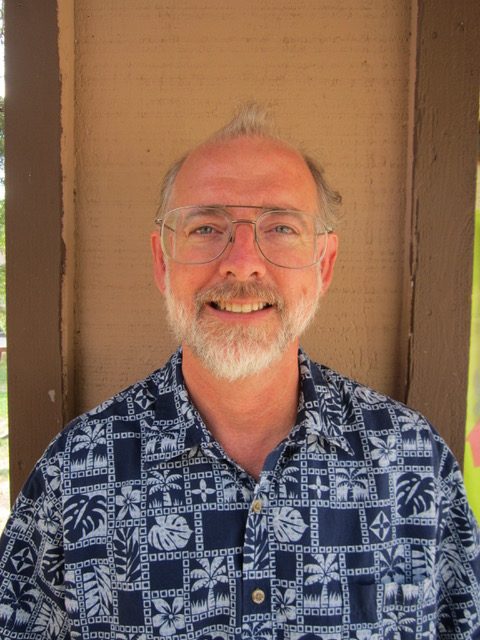Over Christmas break, I had the pleasure of learning a bit more about Dr. Richard Guy, and now I have the pleasure of sharing what I learned with you! Dr. Guy is currently transitioning from Caltech to UCLA to expand the earthquake-monitoring project he has managed for 10 years. Ever since earning his Math/Computing B.S. from La Sierra University, Dr. Guy has stayed in academia.
He followed an older friend’s path to graduate school at UCLA Computer Science, where he completed an M.S. and then Ph.D. in Computer Science (CS). But, before defending his thesis, his career took the first of many turns! He moved to Guam with his wife of two years and taught at the University of Guam while she worked as an OB/GYN at the Guam SDA Clinic. Dr. Guy said “the timing was serendipitous in that I was a charter member of the faculty (of two) of their new CS program. In four years, I taught 14 different CS and Math courses!” Five years later, Dr. Guy was back at UCLA, this time on the CS research staff, while also teaching some undergrad and graduate classes. About halfway through his 15 years there, he “… joined a new interdisciplinary NSF research center that included seismologists among others.” When the center closed as planned, he began his current seismic exploration project.

When I asked Dr. Guy about what motivated him down the path he is on, he told me it went all the way back to his time at La Sierra Academy! “The awe (and I think, adrenaline rush) of seeing a computer program do what I wanted it to do was completely captivating, and I’ve never seriously considered another field since.” Then, during his undergraduate years, he helped one of his professors operate and maintain the single campus mini-computer that served all courses. Besides helping with the computer, Dr. Guy was part of the interdisciplinary program, from which the current Honors system arose! “The intentional blending of science and religion, for example, was novel in Adventist education at that point. But the effort to ‘make it all make sense’ was an enjoyable intellectual pursuit.”
Dr. Guy had many great things to say about his time at La Sierra University, where he learned to study, think critically, and explore ideas on his own “guided by a mentor rather than being assigned a narrow topic.” Dr. Guy has always been a part of academia, saying “I essentially grew up on the La Sierra campus (my father was a faculty member), and have never been employed outside of academia since I started college. It’s continually been an intellectually challenging environment, and that keeps me going every day!”
Dr. Guy also had a chance to tell me about his life outside of work. Before COVID, he would travel annually to the Colorado Rockies and enjoyed navigating the narrowboat canals of the UK! Dr. Guy also said he traveled to Peru 75 times over 6 years because of his seismic work! He liked to read and collect books –– “the family library > 10,000 volumes” –– and maintains a fleet of Jeeps for off-roading adventures.
Finally, Dr. Guy had some advice to share with us: “Push your learning boundaries. Take courses far outside your core interests. You will be so busy after college that opportunities to study other things will be very limited. Now is the time to explore. If you are hard-core science, take that English or History seminar. If you are more humanities-oriented, take a math or science course beyond what’s required. Build a personal library. Build and maintain friendships with both student peers and your faculty.”
–– Zack Sutter (Computer Science, Class of 2024)

